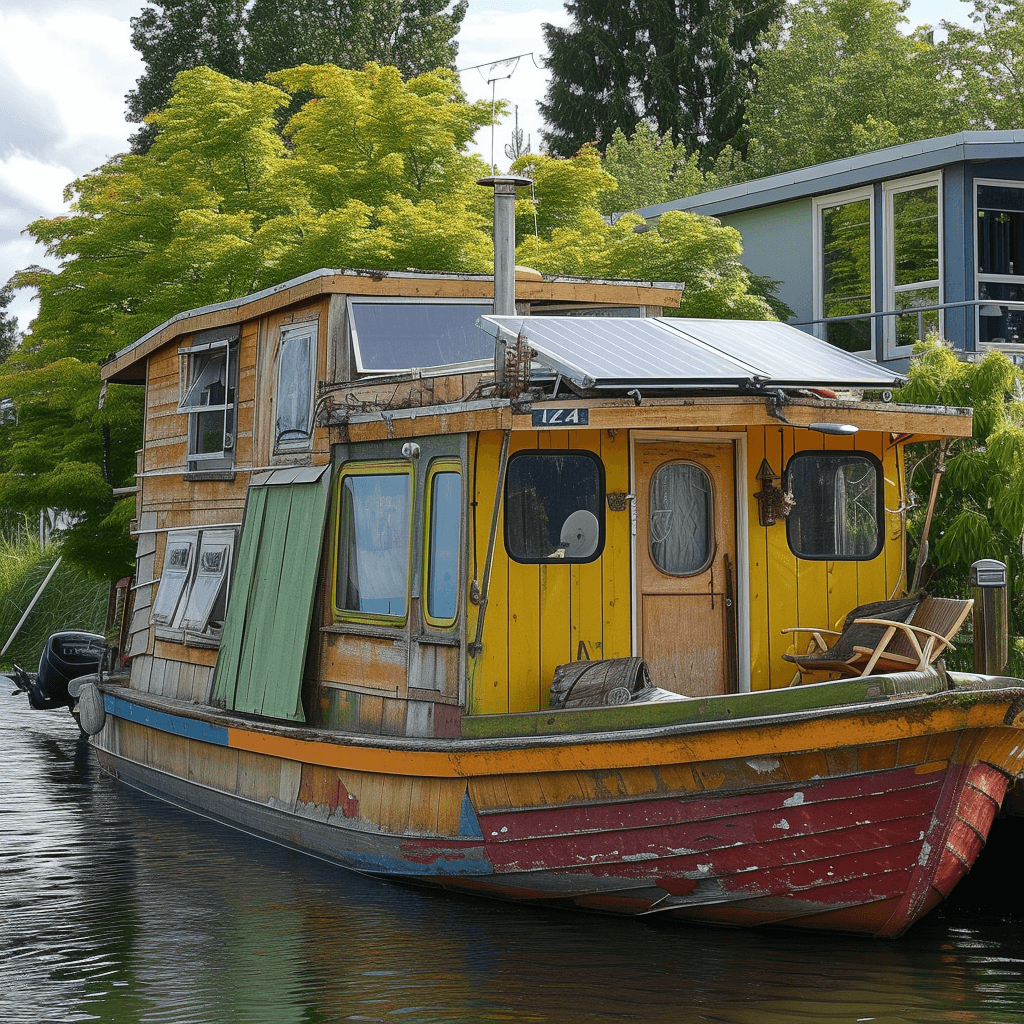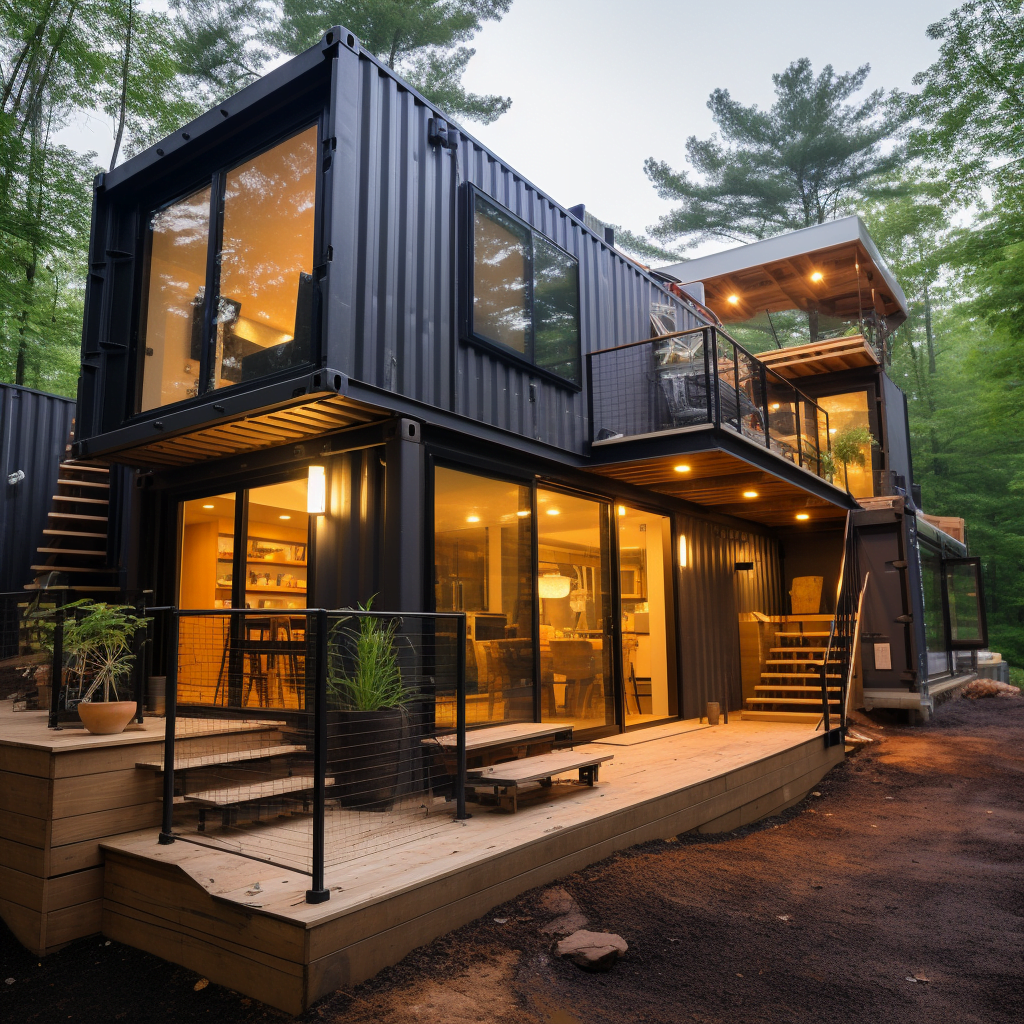Living off-grid is an enticing idea for many, offering the freedom to disconnect from traditional utilities and embrace a self-sufficient lifestyle. But can this adventurous spirit be realized on a boat or in a mobile home? The answer to this question lies in the unique challenges and benefits that come with living off-grid in these unconventional spaces. From generating power and managing resources to navigating legalities and adapting to a nomadic lifestyle, living off-grid on a boat or mobile home presents an intriguing and rewarding journey that requires careful consideration. So can you live off-grid on a boat or mobile home? let´s find out!
Benefits of Off-Grid Living on a Boat or Mobile Home
Independence from the Grid
Living off-grid on a boat or mobile home offers a unique sense of independence. It means being free from reliance on traditional power, water, and sewage systems. Instead of being tethered to the limitations and costs of a grid, I can generate my own energy, collect and filter water, and manage waste efficiently. This independence allows me to live on my own terms, away from crowded cities and the demands of modern society.
Reduced Expenses
One of the major advantages of off-grid living on a boat or mobile home is the significant reduction in expenses. By generating my own power through renewable energy sources and being mindful of my water usage, I can save a considerable amount of money. With no monthly utility bills, my financial resources can be allocated towards other essential needs or even towards pursuing my dreams and passions.
Connection with Nature
Living off-grid on a boat or mobile home provides a unique opportunity to reconnect with nature. Whether on the open water or surrounded by vast landscapes, the serene beauty of nature becomes an integral part of daily life. I can wake up to the gentle lapping of waves, watch the sun set over the horizon, and fall asleep under a sky full of stars. Additionally, being close to nature allows me to appreciate its wonders, fostering a deep sense of gratitude and environmental consciousness.
Flexibility and Freedom
Living off the grid on a boat or mobile home grants me unparalleled flexibility and freedom. I have the freedom to travel wherever the wind takes me, to explore new destinations, and to embrace the joys of an ever-changing environment. I can anchor near secluded beaches or venture into uncharted territories, all while having the comfort and security of my own floating or mobile home. This lifestyle allows me to escape the monotony of everyday routines, fostering a sense of adventure, and opening up endless possibilities for personal growth and exploration.
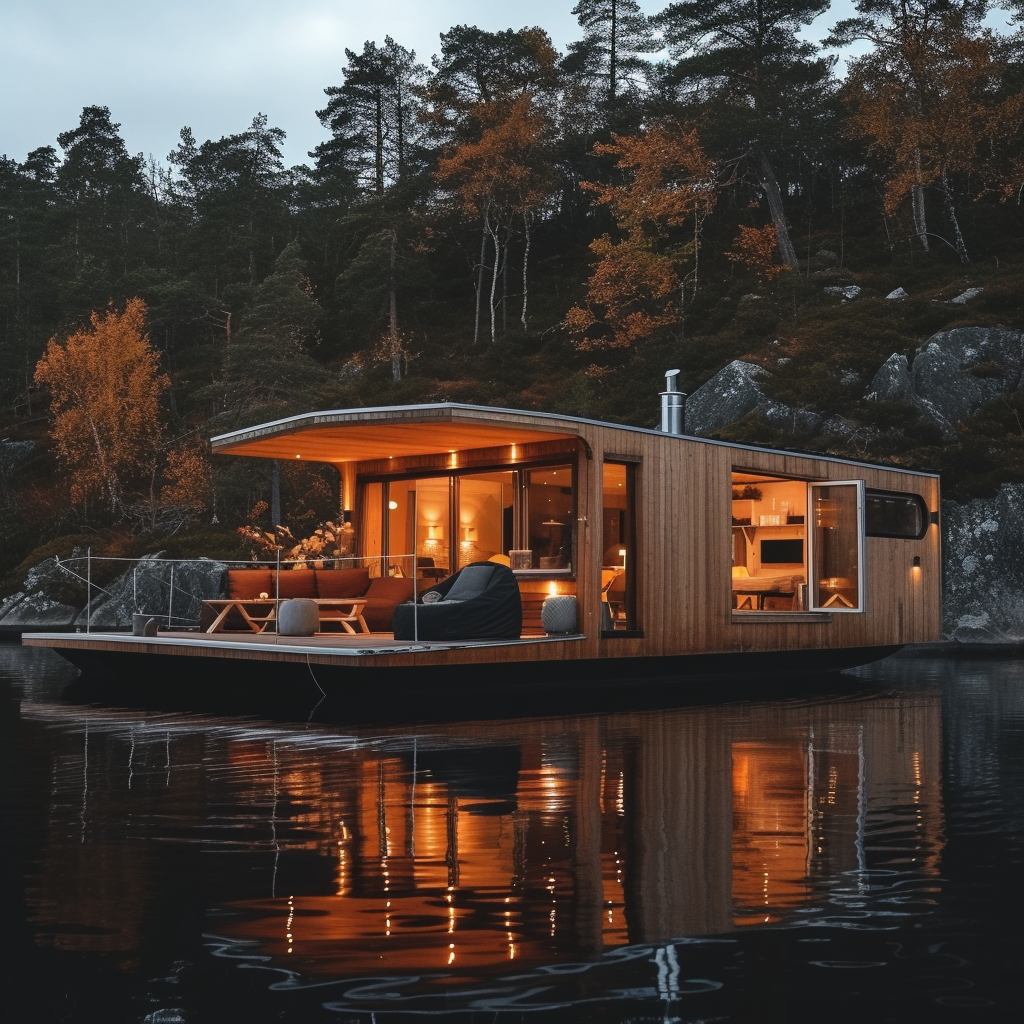
Challenges of Off-Grid Living on a Boat or Mobile Home
Limited Space and Storage
One of the challenges of off-grid living on a boat or mobile home is dealing with limited living space and storage. Unlike traditional homes, boats and mobile homes have a smaller footprint, requiring me to be efficient in my use of space and storage solutions. However, with careful planning and organization, I can maximize every nook and cranny to accommodate my belongings and create a cozy living environment.
Dependency on Weather Conditions
Living off-grid on a boat or mobile home also means being highly dependent on weather conditions. Storms, high winds, or rough waters can pose challenges and even pose safety risks. It’s essential to stay informed about weather patterns and plan accordingly to ensure a comfortable and safe living environment. This may involve seeking shelter in anchorages or marinas during inclement weather or adapting to changing conditions in a mobile home.
Maintenance and Repairs
Another challenge of off-grid living on a boat or mobile home is the need for regular maintenance and repairs. From routine checks of equipment and systems to addressing unforeseen issues, the responsibility of maintaining a functional and safe living environment falls on my shoulders. It’s crucial to possess the necessary skills or be prepared to learn and acquire them to handle repairs effectively. Additionally, proper tools, spare parts, and access to reliable repair services are essential for minimizing downtime and ensuring a smooth off-grid living experience.
Regulations and Legal Considerations
Living off-grid on a boat or mobile home also requires navigating through various regulations and legal considerations. Each jurisdiction may have specific regulations regarding anchoring, mooring, waste disposal, and even the amount of time one can reside in a certain area. It’s important to familiarize myself with local laws and regulations to avoid running into legal issues that could disrupt my off-grid lifestyle. Engaging with local communities and marinas can provide valuable insights and guidance regarding legalities and local customs.
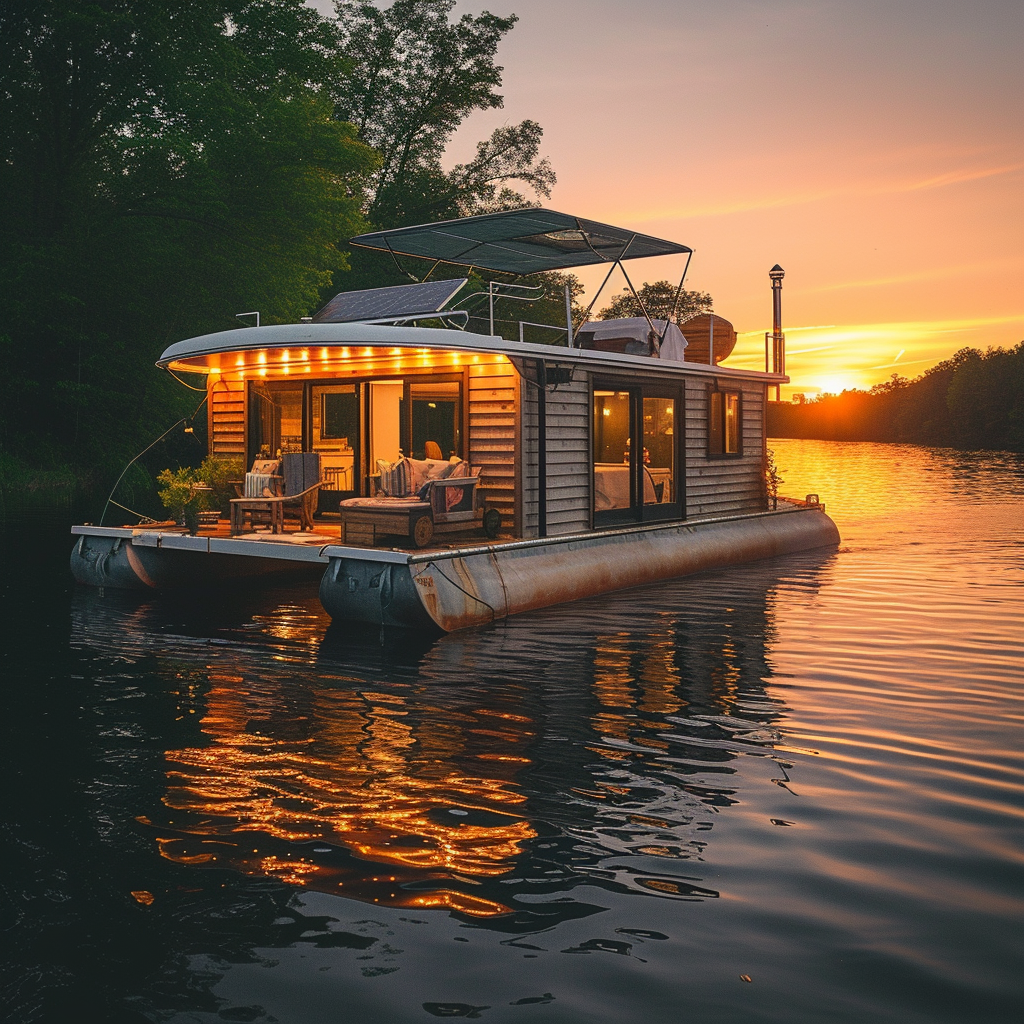
Choosing the Right Boat or Mobile Home
Consider Your Lifestyle and Needs
Choosing the right boat or mobile home for off-grid living starts by considering my lifestyle and needs. Reflecting on factors such as the desired level of comfort, storage requirements, and intended activities will help narrow down the options. For example, if I enjoy water sports or fishing, a boat with ample deck space and fishing provisions might be a priority. On the other hand, if I prefer a more self-sustainable lifestyle, a mobile home equipped with solar panels and rainwater collection systems may be more suitable.
Size and Layout
Size and layout play a crucial role in maximizing comfort and efficiency in an off-grid living setup. While larger boats or mobile homes offer more living space, they may come with higher costs and maintenance requirements. Opting for a smaller, more compact vessel or mobile home can simplify day-to-day operations and make it easier to navigate tight spaces or remote areas. It’s essential to find a balance between comfort and practicality that suits my specific needs and preferences.
Quality and Durability
Given the challenges of off-grid living, it’s crucial to choose a boat or mobile home that exhibits exceptional quality and durability. Investing in a well-built vessel or mobile home not only ensures a longer lifespan but also minimizes the risk of costly repairs and replacements down the line. Conducting thorough research, seeking expert advice, and inspecting the structural integrity and mechanical systems are essential steps to ensure a reliable and resilient off-grid living environment.
Cost and Maintenance
Cost and maintenance considerations are vital when selecting a boat or mobile home for off-grid living. Along with the initial purchase price, it’s important to factor in ongoing maintenance expenses, insurance costs, and any necessary upgrades or modifications. Assessing the affordability of long-term ownership is crucial to avoid financial strain and maximize the enjoyment of off-grid living. Engaging with experts, attending boat shows, or joining online forums can provide valuable insights and information on the cost and maintenance aspects of different options.
Power Generation and Energy Sources
Solar Power
Solar power is one of the most popular and reliable sources of energy for off-grid living on a boat or mobile home. Installing efficient solar panels on the roof or deck allows me to harness the abundant energy from the sun and convert it into electricity. This renewable energy source can power essential devices such as lights, refrigeration, electronics, and even water filtration systems. The advancements in solar technology, coupled with compact and efficient equipment, make it an attractive and sustainable power generation option.
Wind Power
In addition to solar power, wind power can serve as an effective energy source for off-grid living. Utilizing wind turbines or wind generators can harness the power of the wind and convert it into electricity. While wind power may be less consistent and reliable than solar power, it offers an excellent complement to solar panels, especially in windier environments. Careful consideration should be given to the installation of wind turbines to ensure optimal performance and minimize noise and vibration disruptions.
Hydroelectric Power
Living near a water source provides the opportunity to generate energy through hydroelectric power. By utilizing the flow of water through a turbine, energy can be produced and stored in batteries for later use. This method is particularly suitable for off-grid living on a boat, where the movement of water can be harnessed to generate electricity. However, it may require proximity to a flowing river or stream, making it an option limited to specific geographical locations.
Generator
While renewable energy sources are environmentally friendly, having a backup generator is still crucial for off-grid living. A generator powered by diesel, propane, or gasoline can provide a reliable source of energy during periods of low sunlight, calm winds, or when higher energy demands are required. The generator can recharge batteries, power heavy-duty equipment, and provide peace of mind knowing that energy needs can be met regardless of external conditions. However, it’s important to be mindful of noise pollution and to use the generator responsibly and efficiently.
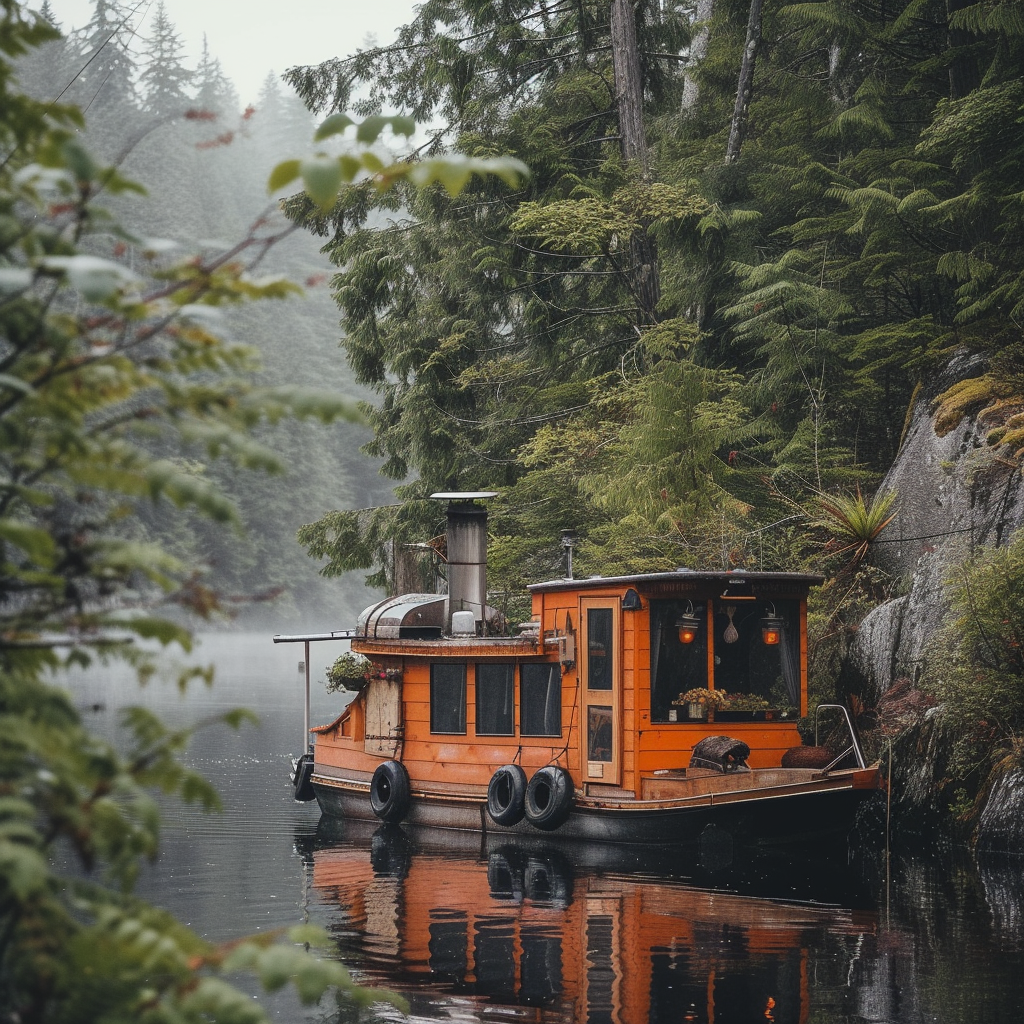
Water Supply and Filtration
Water Sources
Living off-grid on a boat or mobile home requires careful consideration of water sources. Depending on the location, various options are available, including marina water hookups, rainwater collection, freshwater lakes or rivers, or even desalination systems for boaters at sea. Analyzing the water sources available in the desired area of off-grid living is essential for planning and ensuring a consistent supply of clean and potable water.
Water Tanks and Storage
To maintain an adequate water supply, having sufficient storage is essential. Installing water tanks onboard a boat or mobile home allows me to store collected or received water for future use. The size and number of tanks will depend on personal water usage requirements and the availability of water sources. It’s important to consider the weight distribution and placement of tanks to ensure optimal stability and maintain the boat or mobile home’s performance.
Water Filtration Systems
Ensuring access to clean and potable water is vital for off-grid living. Water filtration systems can remove impurities, bacteria, and contaminants, making collected or obtained water safe to consume. Depending on the quality of available water sources, a combination of filters such as sediment, carbon, and UV filters may be necessary for adequate purification. Regular maintenance and replacement of filter elements are essential to ensure optimal performance and water quality.
Waste Management and Sanitation
Toilets and Waste Disposal Options
Proper waste management and sanitation are crucial in maintaining a clean and sustainable off-grid living environment. Choosing the right toilet system is a significant consideration. Various options are available, including traditional marine toilets, composting toilets, and incinerating toilets. Each option has its pros and cons, ranging from water conservation to ease of use and installation. Assessing personal preferences, space limitations, and environmental impact will help determine the most suitable toilet system.
Composting Toilets
Composting toilets have gained popularity among off-grid dwellers due to their eco-friendly nature and minimal water usage. These toilets use the natural process of decomposition to break down waste into compost, which can then be safely disposed of or used to fertilize plants. Composting toilets eliminate the need for water-intensive flushing systems, reducing water usage and waste disposal requirements. However, proper maintenance and following specific guidelines are essential for optimal performance and odor control.
Graywater Systems
Graywater, the wastewater generated from sinks, showers, and laundry, can be managed through graywater systems. These systems treat and filter the water, making it suitable for irrigation or non-potable uses such as flushing toilets. Implementing graywater systems helps minimize fresh water usage and reduces the strain on sewage systems. It’s important to be mindful of local regulations and utilize eco-friendly soaps and detergents to ensure minimal environmental impact.
Marine Sanitation Devices (MSDs)
For those living off-grid on a boat, marine sanitation devices (MSDs) are essential for proper waste management. MSDs treat and break down waste to prevent contamination of natural waterways. There are different types of MSDs available, including holding tanks, macerator pumps, and treatment systems. Complying with local regulations regarding MSDs is crucial to avoid legal issues and contribute to environmentally responsible off-grid living.
Navigation and Communication
Navigational Equipment
Whether on a boat or mobile home, having reliable navigational equipment is essential for off-grid living. GPS systems, compasses, charts, and depth sounders are some of the necessary tools for safe navigation. It’s important to invest in high-quality equipment, regularly update charts and maps, and possess the necessary skills to interpret and use navigational aids effectively. Being well-prepared and knowledgeable about navigational systems helps ensure a smooth and safe off-grid living experience.
Communication Devices
Maintaining communication capabilities is vital for off-grid living. While traditional mobile networks may not always be accessible, alternative communication devices such as VHF radios, satellite phones, or long-range Wi-Fi antennas can provide a lifeline in remote areas. These devices allow for emergency calls, receiving weather updates, and staying connected with loved ones. Keeping these communication devices fully charged and having backup power sources is essential in case of emergencies or unforeseen circumstances.
Emergency Preparedness
Living off-grid on a boat or mobile home requires thorough emergency preparedness. Having proper safety equipment such as life jackets, fire extinguishers, and emergency flares is crucial. Creating and regularly practicing emergency response plans, including procedures for medical emergencies and evacuation, is also vital. Staying informed about weather patterns and potential hazards helps mitigate risks and ensures a safe and enjoyable off-grid living experience.

Food Storage and Prep
Refrigeration
Proper food storage is essential for maintaining a healthy and sustainable off-grid living lifestyle. Different options for refrigeration are available, including energy-efficient DC refrigerators, coolers, or even ice-cooling methods. DC refrigerators, specifically designed for off-grid living, run on low energy and provide adequate cooling for perishable food items. Effective insulation, proper ventilation, and careful monitoring of energy consumption are essential for maximizing efficiency and minimizing waste.
Storing Dry Goods
Storing non-perishable food items, known as dry goods, is necessary for off-grid living. Utilizing space-saving storage solutions such as airtight containers, collapsible bags, and vacuum-sealed packaging helps optimize limited storage areas. Keeping an inventory of stored items, rotating stock regularly, and practicing proper pest control strategies ensure a well-stocked pantry and minimize food waste.
Cooking Options
Off-grid living requires adaptable cooking options that don’t rely solely on traditional kitchen appliances. Portable stoves, propane or biomass-fueled cookers, and grills provide flexibility and allow for outdoor cooking experiences. Embracing the use of alternative cooking methods such as solar ovens or slow cookers also helps conserve energy. It’s important to choose cooking options suitable for the available energy sources and be open to experimenting with new and creative culinary techniques.
Internet and Entertainment
Internet Access Options
Maintaining internet access while living off-grid is essential for staying connected and accessing information. Depending on the location, various options are available, including satellite internet, long-range Wi-Fi antennas, or mobile data plans. Researching the coverage and speeds of different internet providers and antennas is crucial for selecting a reliable and suitable option. It’s important to keep in mind that some remote areas may have limited or no internet access, necessitating alternative means of entertainment and communication.
Entertainment on Board
While off-grid living provides a unique opportunity to disconnect from the digital world, having sources of entertainment on board is important during downtime. Books, board games, musical instruments, and art supplies are great alternatives to digital entertainment. Embracing outdoor activities such as fishing, swimming, or hiking also provides a refreshing change of pace from the digital realm. Exploring new hobbies and utilizing the natural surroundings for entertainment fosters creativity, relaxation, and a deeper connection with nature.
Community and Socialization
Connecting with Other Off-Grid Boaters or Mobile Home Dwellers
Off-grid living doesn’t mean complete isolation. Connecting with other like-minded off-grid boaters or mobile home dwellers fosters a sense of community and support. Joining online forums, attending boating or off-grid living events, or participating in local groups and clubs can provide valuable insights, resources, and opportunities to build meaningful relationships. Sharing experiences, challenges, and knowledge helps create a network of individuals who understand and appreciate the off-grid lifestyle.
Local Communities and Marinas
Interacting with local communities and marinas can enhance the off-grid living experience. Engaging with the local community allows for cultural exchange, learning from local practices, and contributing positively to the environment. Marinas can provide access to essential services, such as water refills, waste disposal facilities, and repairs. Becoming part of the marina community opens doors to social events, introductions to fellow boaters, and access to helpful advice and resources.
Conclusion
Living off-grid on a boat or mobile home offers a rewarding and unique lifestyle that prioritizes independence, sustainability, and connection with nature. While it comes with its challenges, thorough planning, resourcefulness, and a sense of adventure make this off-grid living experience invaluable. By considering one’s needs, selecting the right equipment, and embracing the principles of self-sufficiency, off-grid living on a boat or mobile home can be a fulfilling and transformative journey towards a simpler and more sustainable way of life.

